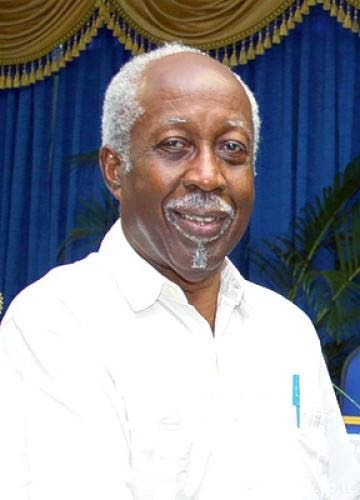Some reflections at sixty

REGINALD DUMAS
Pt II
WE ENTER our 61st year of political independence in a sombre mood. Worries and complaints abound: violent crime; drifting and angry youth; a rapidly escalating cost of living; deficient institutions, including a creaking judiciary, some of whose members, remarkably, chastise one another in public; apparent suggestions of primacy of political party over country; a public service to which the word “service” is deemed alien; collapsing infrastructure (and possible resuscitation of past failures like “special purpose companies”); a continuing shortage, if not absence, of official consultation with the people; destructive weather; new forms of corruption; trade union fury; a sharp rise in the number of have-nots, with widening, and disquieting, inequities – which, to add further disquiet, have strong racial characteristics – between them and the haves; and so on.
It has often been asserted that TT is a failed state. That is nonsense, and I would suggest to those who peddle it that they get a good political science definition of the term. Better, they should see some of the countries I have, in Africa and Asia. Or the Caribbean. How many of the critics have ever visited Haiti? And eaten a mud pie for the day’s sustenance? Oh, you didn’t know about the nutritional and therapeutic qualities of mud?
For a tiny place – our population is only a bit more than half that of Brooklyn, New York – we haven’t done badly. But it’s nonetheless true that we haven’t done as well as we could and should have, and that our current condition is disturbing. Yes, there has been a worldwide decline, but we can do better. Yes, we can!
Sixty years ago we would talk and reflect. We widely held and practised certain values – of family, community, etc – which are in very short supply today. Institutions like the judiciary were strong and respected, and the public service, now the butt of politician and proletarian alike, had titans like William Demas, J O’Neil Lewis, Frank Rampersad, Doddridge Alleyne, etc. Self-discipline was everywhere evident, even if there were the unavoidable aberrations.
Today, abetted by the social (frequently anti-social) media, we spend too much time and energy on the superficial and personal, on tearing down rather than constructing, on pointing fingers at others rather than pointing the way forward, on sneering rather than suggesting, on dependency rather than self-reliance, on effects rather than causes. Critical thinking is in short supply. Our education efforts still emphasise academic prowess, largely in a planning and development vacuum.
Party politics hasn’t helped, of course. Over the decades, commitment to the best interests of the country came increasingly to be seen as coterminous with commitment to party. (And, of course, to race, since the main parties were thus divided.) I had to resist certain pressures myself; I was even offered ministerial office. I have however remained politically unaligned.
1970 brought certain societal benefits; 1990 none I know of. And there were, in my opinion, two other events, not generally mentioned, which have influenced our thought and behaviour since 1962.
The first has had a lasting impact on our institutions. It was a totally unexpected assault on the public service leadership by Eric Williams in October 1975. He lambasted what he called “a small group of ambitious senior civil servants;” it was quickly obvious that his targets were Alleyne (his own permanent secretary and head of the public service), Rampersad, the Finance PS, and Eugenio Moore, the Planning PS.
Why the attack I have never discovered, but, as I wrote in 2010, “the public service has not recovered…It pulled in its horns, and politicians gratefully exploited this new diffidence, thus weakening it further to the detriment of the country…” And the message was very clearly received by other state institutions.
The second comes from another comment by Williams. In August 1976 he went to Piarco to welcome back Hasely Crawford, who had, in Montreal, just won TT’s first-ever Olympic gold medal. In his remarks, he said that his Cabinet would be discussing a proposal to provide more funding for sport in TT; “money,” he added, “(was) not a problem.” All he meant was that, with the 1973/4 rise in the oil price, TT could now afford to think in such terms.
His meaning was promptly distorted by the population: “Allyuh eh hear? De Prime Minister say money is no problem.” Wild, mindless spending ensued; self-discipline virtually disappeared, never to reappear in the same degree. Attempted explanations of what Williams was really trying to say were waved aside as fluff. The societal effect of our misinterpretation of his intent is still with us.
Governments, however, have also been at fault. I shall come to that.


Comments
"Some reflections at sixty"